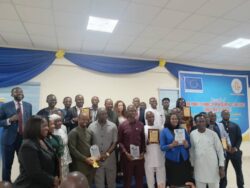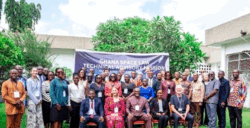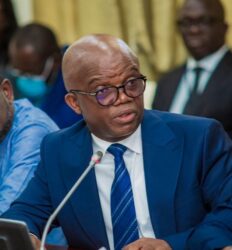The devastating effects of the COVID-19 pandemic on the tourism sector cannot be overestimated. As the world stopped and the industry hit rock bottom, it triggered a serious conversation about the true meaning of resilience for a sector that plays an important role as a commercial activity having a multiplier effect for many industries within an economy.
The silver-lining from the grim effects of COVID-19 was the attention this sector got from governments and the recognition of its impact on national economies. This provoked an inquest on how to change tack on best practices to ensure sustainability, hence improving livelihoods.
The youth were left out of the agenda on who could be a pillar that defines the sustenance if not buffer the sector. The World Youth Student and Educational (WISE) defines youth tourism as a form of tourism that includes independent travelers (unaccompanied by either parents or guardians) for periods of less than a year.
The youth seek to experience a new culture and benefit from new learning opportunities in an unknown environment that is different from their everyday surroundings. According to UNWTO forecasts, the year 2020 was to see 300 million young people travel in a year estimated at about US$320billion in market value.
This begs the question, why aren’t we engaging the youth?
Fact checks estimate the planet to be home to around 1.8 billion people between the ages of 10-24— the largest generation of youth in human history. The young population is also predicted to be over 50 percent of the world’s population by 2030. The clock is ticking and the world leaders ought not mince their words and put into action the next steps to place the youth in a position that guarantees the economic safety of many sectors.
It is understandable that with the novel Coronavirus inflicting pains on many and wrecking livelihoods, the conversation was centred round resilience, sustainability and perhaps product diversity. The youth discussion never came to the party.
The participation of youth in national and international affairs has been mentioned on many occasions by governments as the pillar that the future of their countries depends upon. This in many cases has been seen as a mere talk-shop than any concerted efforts to drive that agenda.
The Global Youth Tourism Summit organised by the World Tourism Organisation (UNWTO) in collaboration with other strategic partners was a step in the right direction, while creating awareness of the power of tourism for the youth.
Touted as a game changer, the event that had over 120 Youngsters who put Tourism Ministers, business leaders and industry echelons to task in answering tough questions from teenagers on thorny issues such as mass tourism, biodiversity, equality, culture and policies around the future of travel and tourism.
The summit placed youthful people in the driving seat and offered them a unique opportunity to engage and understand issues in the tourism sector. Events such as this need to be replicated around the world to not only nurture the next talents of tourism professionals, but also serve as an advocacy platform for youth to be heard.
The Secretary General of the UNWTO, Zurab Pololikashvili, throughout his administration has rallied member-states to recognise the importance of youth participation in tourism and thus create platforms and avenues for the industry to harness their potential. Initiatives such as the UNWTO Students League, Job Factory, Innovative challenges have unearthed some of the finest brains whose initiatives can make tourism a better sector.
At the closing ceremony of the historic GYTS event, the UNWTO scribe Zurab Pololikashvili said: “The Global Youth Tourism Summit is a hugely important first for UNWTO and for our sector, and young talent from every region will be supported to give them a stage to voice their ideas about tourism’s future”.
As the delegate from Spain stated on a podcast conversation: “It is good to make the youth the future, but it’s even greater to be factored in the present discourse and planning”.
Understanding the needs of youth helps the industry and policymakers to develop a robust and agile plan. The attainment of Sustainable Development Goals (SDGs) requires commitments on consideration of the youth in realising this agenda. Mere appointment of youngsters in positions of influence are not enough to benchmark the success of youth participation; deliberate efforts to promulgate policies which make youth a structure of the sector are needed.
This assertion was buttressed by the United Nations Secretary General’s Envoy on Youth, Jayathma Wickramanayake, when she underscored the importance of promoting the active engagement of young people as agents of transformational change, challenging the status quo, and realising the Agenda 2030.
The Sorrento Call to Action succinctly makes the case active involvement of youth in the affairs of tourism. The Call-to-Action states that: “Decision-makers must empower the youth, providing them with opportunities to voice their concerns”, while also working to “stimulate education to ensure responsible travellers and professionals”. At the same time, it recognises the historic significance of the first Global Youth Tourism Summit and calls on UNWTO to hold annual summits and work with its member-states on national events.
Africa Tourism Partners, organiser of Africa Youth in Tourism Innovation, has through numerous events championed the youths’ participation in tourism – and they need support to actualise some of the outcomes which portend well for the industry; the latest being the 4th edition of the event in Namibia’s capital Windhoek, which was another giant step in integrating youth in the tourism sector and harnessing their potential to build a resilient and buoyant tourism sector.
As we mark World Youth Day, let’s continue to give youth a meaningful place in the wider tourism space and ensure they are equipped with the requisite skills and support to become and remain relevant to the sector.
>>>the writer is a tourism blogger, publicist and editor of VoyagesAfriq










